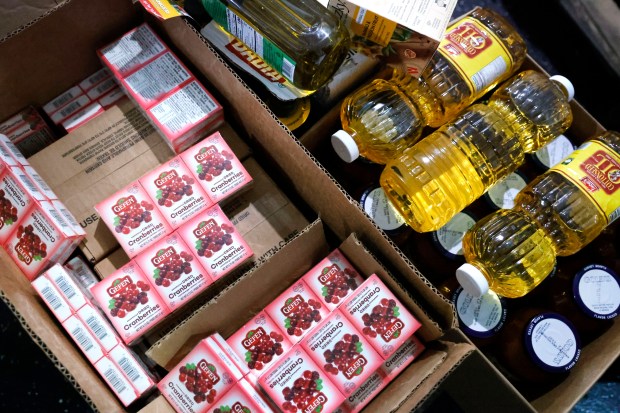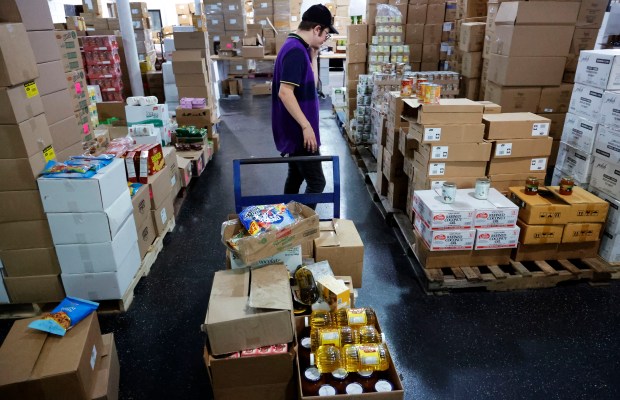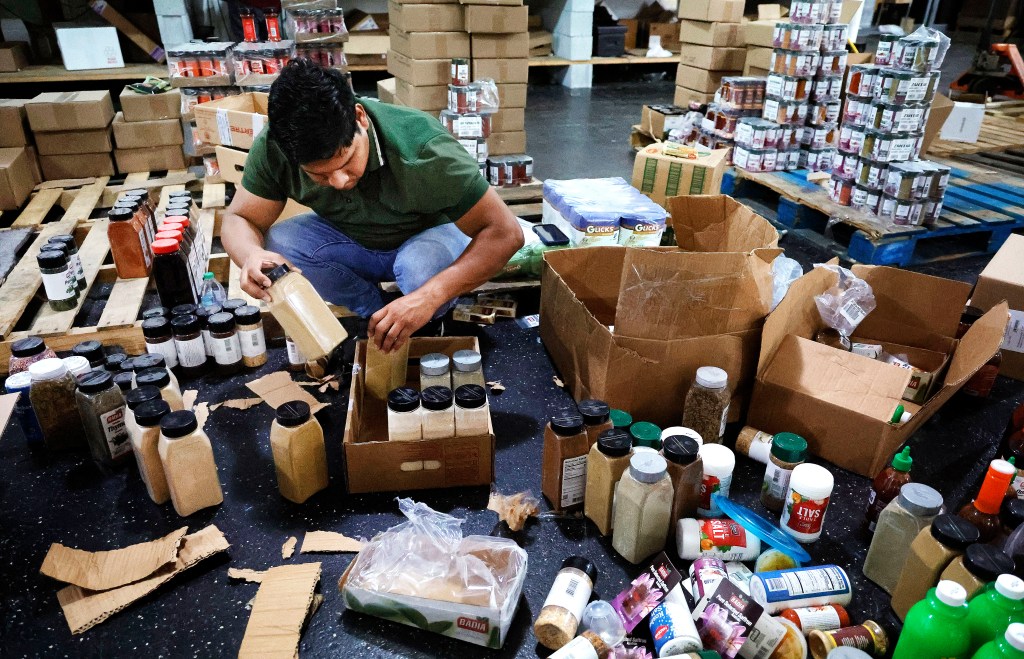There’s no need anymore to schlep to Miami to buy discounted kosher food.
The nonprofit Miami Kosher Ko-Op is now delivering to homes in Broward and Palm Beach counties as part of its mission to make sure anyone of any income can easily access kosher products at reasonable prices — and to that end has changed its name to Kosher 4 Less.
“The new name reflects our mission to service well beyond the Miami area and to be helping families of all different income brackets,” spokesman Ben Feferman said. “Everyone is struggling with the rising price of kosher food and food security in general and we want to alleviate that.”
The organization stocks 775 items, has 850 customers and has been expanding its delivery service northward, growing a customer contingent that its president, Rabbi Aharon Greenberg, said has become the majority of its sales.
It keeps prices low by reducing labor costs, such as packaging large chunks of meat instead of cut-up pieces. The organization also does not take a profit and raises money to cover overhead costs, including rent, utilities and staff at its Miami depot.
 Almost immediately after launching, organizers saw a need for discounted kosher products throughout the year and throughout South Florida. (Carline Jean/South Florida Sun Sentinel)
Almost immediately after launching, organizers saw a need for discounted kosher products throughout the year and throughout South Florida. (Carline Jean/South Florida Sun Sentinel)
“The goal is to allow families to shop at a price they can afford, 30% to 40% of the retail cost,” Greenberg said.
For observant Jews, keeping kosher is not only a way of life but a commandment. Kosher laws stem from the biblical books of Leviticus and Deuteronomy and were expanded on in later rabbinical teachings. Only certain animals may be eaten, such as cows, sheep and chicken, and there are detailed rules about how they can be killed. Fruits and vegetables must be free of bugs; meat and dairy cannot be eaten together, and their utensils must be separate, too.
The high cost of kosher meat is a frequent discussion point in many Jewish circles.
The prices are “insane,” said Avi Newman, a Boca Raton health care administrator.
Besides cooking for their three kids, Newman and wife Erica, members of Boca Raton Synagogue, an Orthodox congregation, like to host gatherings at their home, such as football watch parties on fall Sundays. Newman cooks large quantities of meats such as ribeye steaks, which cost about $30 a pound at local kosher markets.
But when he buys from the Ko-Op, the price falls to less than $19 a pound.
“It was becoming unaffordable to buy kosher,” said Newman, 34, a New York native who moved to Boca Raton in 2020. “Now almost all my kosher meat comes from the Ko-Op.”
 Driver Yehuda Fishman delivers food to Avi Newman at his Boca Raton home. (Ben Feferman/Courtesy)
Driver Yehuda Fishman delivers food to Avi Newman at his Boca Raton home. (Ben Feferman/Courtesy)
The Miami Kosher Ko-Op opened in 2009 as a small organization focused on getting food to South Florida Jews for Passover. Volunteers collected about $60,000 to buy kosher-for-Passover products for the needy in Miami-Dade County.
Almost immediately, organizers saw a need for discounted kosher products throughout the year and throughout South Florida. The warehouse began to expand, from offering 15 items and serving 150 families in 2009 to 150 items and 300 families the following year.
The Ko-Op began deliveries on a limited basis to Broward and Palm Beach counties eight years ago at the request of customers. An unrefrigerated minivan delivered once a month to a central location, Greenberg said. Now, the organization has a refrigerated van that heads north as often as twice a week and makes stops at individual homes.
South Florida’s kosher grocery stores have been attracting an expanding market of customers, as many Jews moved to the area during the COVID-19 pandemic and in subsequent years. Broward’s Jewish population has grown from 149,000 in 2016 to 176,200 today, according to the Jewish Federation of Broward County.
A study has not been done since 2018 on south Palm Beach County’s Jewish population, but if Jewish day schools are an indicator, the community is showing tremendous signs of expansion. There are now 12 Jewish day schools in the Boca Raton area, up from about four 10 years ago, according to Rabbi Josh Broide of Boca Raton Synagogue.
 Yehuda Fishman, a Kosher 4 Less driver, sorts items on Monday, May 19, 2025. (Carline Jean/South Florida Sun Sentinel)
Yehuda Fishman, a Kosher 4 Less driver, sorts items on Monday, May 19, 2025. (Carline Jean/South Florida Sun Sentinel)
Kosher markets have followed along. Most recently, KC Market, which had a single store in Hollywood, opened new stores in Boynton Beach and Hallandale Beach last year.
Ezra Stern, of Boca Raton, is a Ko-Op customer who orders meats such as brisket in a 15-pound package, chuck roast, which comes in a 7- to 10-pound block, and chicken breasts in an 8-pound package.
Some cooks may not want to deal with these large bundles. But Stern, who moved to Boca Raton from Hollywood in 2019, said he relishes the busy work.
“I enjoy the prep of the larger cuts,” he said. “If I’m having guests for the Sabbath, I might make the whole thing.”
Stern said he occasionally buys kosher products at Publix, Whole Foods or Walmart but plans to stick with the co-op for most meats.
“For the quality of service and pricing, I find it difficult to move away,” he said.
For more information, go to kosher4less.org.
Originally Published: May 29, 2025 at 4:18 PM EDT

